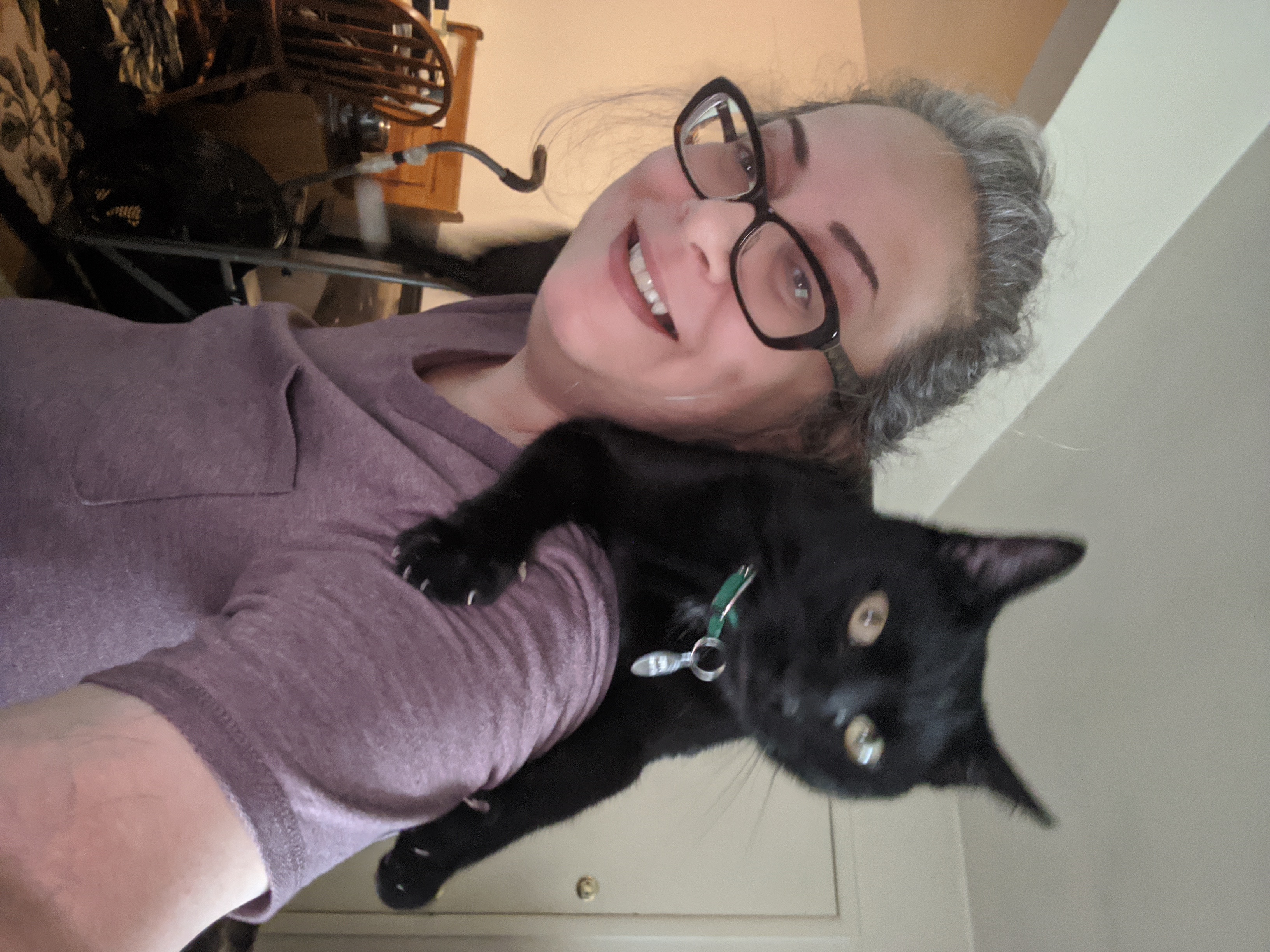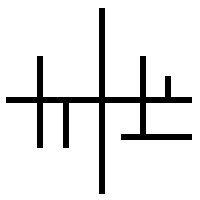When I eat chicken, I call it chicken. Chicken wing; chicken drumsticks etc.
When I eat lamb, I call it lamb. Lamb shank; lamb cutlets.
So why do I not eat pig or cow? I eat pork or beef. Is there a reason for that?
My understanding is that the difference in terms goes back to the Norman invasion, which is when a ton of French-based terms for things were carried over.
The peasants referred to everything as the name of the animal but the French nobles referred to it as porc, boeuf, etc. This is also where we got the words for venison, mutton, veal, poultry, and also apparently pheasant
To add to this, the rich (i.e., French-speaking) consumed the most butchered meat, by far. So, it came to be that butchered meat for sale would be labeled in French, while the live animals, which were tended by (English-speaking) peasents retained their English names.
@whenigrowup356 Yup. And then you have the New World animals where we use the name of the animal for both the animal and the meat, like buffalo.
deleted by creator
They are actually different (but similar) animals, from different continents.
I think you’re technically right, but most Americans call bison buffalo, even though they’re different animals.
And then we have foods like Buffalo wings. English is fun.
Buffalo wings are named for Buffalo, NY, where they were invented.
And what was the city named after?
The city was named after the Buffalo River. The origin of the river’s name is uncertain, but it is most likely named after the animal.
I know.
I thought this was named after the city.
Like a Chicago dog.
Buffalo in english is a weird word, because it’s an animal, a city and an action, which is why the phrase “Buffalo buffalo buffalo buffalo buffalo” is one of the weirdest things I’ve ever heard, but completely correct english.
Piggybacking off of this, “venison” comes from a Latin word meaning “to hunt” and was originally used as more of a catch-all term for game meats. You might have deer venison, boar venison, rabbit venison, etc. Over time it came to mostly be used to refer to deer
I guess the reason why it is “chicken” and not “poulet” or something, is because chicken was allready the poor man’s meat back than?
From what I can work out, yep it seems that way. Pork and beef were too expensive for the peasants so they just referred to them as the animals they were raising, but chickens were actually on their menu so we ended up keeping the animal words for it. We still got the word for pullet (young hen) though.
I just read a theory that poisson, french for fish, didn’t come over because it sounded too much like poison, but who knows if that’s true lol.
We do have “poultry” as a catch-all for domestic birds. Not exactly the same as beef/cow, but definitely has a Norman connection.
My country had not been invaded by the Normans and we speak completely different language, yet we don’t call it pig or cow either.
If you don’t mind my asking, which language is yours?
It’s an interesting question to ponder which different languages ended up with distinction words for the meat vs the living animal, and maybe what that says about the culture.
The distinction is not a feature of French, from what I understand, and English ending up with this distinction seems to have been entirely accidental.
It’s Czech. It also applies to Slovakian.
My country also has not been invaded by the Normans but we call pig a pig and cow a cow.
Where are you from, if you don’t mind me asking?
South-Eastern EU. Not going any more particular than that :)
Ok, no problém.
Because of the Norman invasion. 1066 and all that. (edit: specifically, after a time the peasants spoke English and looked after the animals, the nobility spoke french and named the food, so we got the English words for the animals and the French words for most of the farm animals were used for the food made from them)
Interesting but doesn’t quite answer the question.
Boeuf is the French word for beef, not cow. So the question is still why do we call it roast boeuf instead of roast vache?
To be more confusing, cow is the term for the female of the species, in this case cattle, but female whales are also called cows.
Does vache mean cow or does vache mean cattle?
The French eating it called it beef, the English raising it called it cow. The french didn’t call it roast cow because they were eating it as food, thus beef.
The above poster explained your question already.
Quand je mange du poulet, je l’appelle poulet. Aile de poulet; pilons de poulet etc.
Quand je mange de l’agneau, je l’appelle agneau. Jarret d’agneau; côtelettes d’agneau.
Alors pourquoi est-ce que je ne mange pas de cochon ou de vache ? Je mange du porc ou du boeuf.
Quelle est la raison de ceci?
Chicken and lamb were more commonly seen and interacted with by the people that ate them, cows and pigs were not.
Parceque un porc ou un boeuf ça design aussi l’animal.
Boeuf is the male cow. Vache is a female.
Perfect and succinct answer.
If it involves food or the culinary arts, then chances are good France and the French language is involved.
Chicken has Its own “Norman” word, which is “poultry”.
True. I think someone else pointed this out as well. But I don’t eat a poultry drumstick. The English language is a funny thing!
deleted by creator
This phenomenon is far from exceptional to English though.
Same for lamb, mutton
We do in Denmark.
The english words are different because…
The farmers would call it by its english name. And the king and other fancy people would use the french.
Pig becomes porc
For example.
Eventually this meant that when the animal was alive youd call it by the english name. And when it was butchered you used the french name.
Or so i read once.
My favorite animal is the frikadellapotomus.
Removed by mod
An “accident”
It’s because of the Norman conquest of England. Basically, the ruling nobility spoke French and the lower classes spoke English. The peasants who were in charge of livestock spoke English so pig, cow, and chicken stuck around. But it was mostly the upper classes who ate the meats so they used French words at the dinner table (beef from boeuf, pork from porc, poultry from poulet, etc.).
As I understand it, after the norman invasion in 1066, generally the Saxon (Germanic speaking) people reared the animals so the names for the animals come from the German language, but the norman (French speaking) people eat the animals so the names for the meat generally derive from the French language.
Tagger below explains it but also wanted to chime in that chicken is often “poultry”, but over time, we became comfortable with “chicken”.
Not exactly. The poultry family includes other fowl/birds, including turkey and duck.
true! I poorly was thinking about poultry as a derivative of french words.
Fascinating! Thank you all for the answers! I got an F in French at high school, which might explain why I hadn’t made the connection.
F is for French after all
Adoption from French, I assume. I would say sheep for the animal and lamb for the meat, though.
Lamb (the meat) is specifically young sheep, which are also called lambs. Adult sheep are called sheep, but the meat is called mutton.
English makes no sense.
Hogget for in between.
A sheep in its first year is a lamb and its meat is also lamb. The meat from sheep in their second year is hogget. Older sheep meat is mutton.
Oh…, maybe not.
Generally, “hogget” and “sheep meat” are not used by consumers outside Norway, New Zealand, South Africa, Scotland, and Australia.
It gets even weirder. As a New Zealander, we would never say hogget for meat for the consumer (unless you went to a 'proper butcher), Farmers/Butchers will call 1-2 y/o sheep hoggets though.
Or a two-tooth 🙂
I agree, I would call the meat of a two-tooth hogget, but if you wanted to buy it in the shop, well I’m not sure you could find it.
Supermarkets call all of it lamb.
But as for consumers, might depend on generation or whereabouts you’re from. I have memories of my mother getting angry “this isn’t lamb it’s hogget” when she tasted it.
I’m from Australia and I’ve never heard that one. I don’t eat lamb (or sheep. Or mutton. Or whatever.) though, so maybe I’m not the best source.
As a teacher of English…I agree.
one of my english teachers in highschool was actually ESL, and from Croatia. She spoke like seven or eight languages, though. It was funny, because occasionally she’d just slip into whatever random language.
She also liked to swear in french. it was truly hair raising. Incidentally, she also refused to use the ‘standard’ books reading. She’d probably get banned in half the country these days, but she genuinely was probably the best English teacher I’ve had. also the best french teacher ;)
As a bilingual, switching into other languages by accident often sounds insane, like you’re just talking and then “Oh shit, that was the wrong language”
Yeah. I mean, I don’t think I ever made a huge deal over it. there were definitely jerks that did though. (and also trolled her to the point of swearing in other languages… I felt bad about that. Especially looking back because I don’t think school admin had her back with those kids.)
I have a couple of languages I curse in so I don’t get caught, usually Khmer or Portuguese, though the latter is pretty widely spoken/understood.
Sheep in french is mouton. Pig is porc and cow is boeuf. Squid is calmar
lamb is the young animal. Sheep raised for meat don’t live long enough to not be lamb, though. old animals tend to produce tougher meat. (as apposed to sheep raised for wool production.)
- You generally never eat cow, because cows produce milk. When you eat beef, it is usually a steer.
- Sometimes English uses culinary names - pork for pig, calamari for squid, etc. The explanation for each is likely to be distinct, but e.g. for pork, that’s from Latin for pig (porcus) and for some arbitrary reason it stuck around. The answer is probably always going to be some variant on “it’s arbitrary”, though.
Cows breed for meat do not produce milk other than that needed for calves.
We do eat cows
calamari is just squid in Greek, maybe English people learned about cooking squid from Greece since there’s so many of them and the word for it just stuck
Beef’s turn…
c. 1300, “an ox, bull, or cow,” also the flesh of one when killed, used as food, from Old French buef “ox; beef; ox hide” (11c., Modern French boeuf), from Latin bovem (nominative bos, genitive bovis) “ox, cow,” from PIE root *gwou- “ox, bull, cow.” The original plural in the animal sense was beeves
Then you get oddities like ox used for the offcuts/ofal (tail, cheeks, tongue, heart)
Wait, I’ve heard of oxtail as a delicious southern dish, but never had the opportunity to try it.
Is it really just a generic cow tail?
English is stupid, and I say that as a native speaker.
yep ;)
cooking squid
Monsters!
Oh, I don’t know, with 8 arms a squid cook could be VERY effective!
Just don’t ask one to mix the salad…
There’s nothing arbitrary about it. The Norman invasion meant the English ruling class, and therefor the ones introducing culinary terms, spoke French. Peasants spoke English, which was far more Germanic at the time. So the peasants breeding animals and whos names for the live animal stuck, used the words pig and cow, while those creating what few recipes we do have were using French boeuf and porc
deleted by creator
Quality documentary. Much better than anything BBC ever produced. Literally answers all the questions I had and some I didn’t know I could ever have.
Lots of more nuanced answers, but I want to say language is weird, that’s why
I’m also confused as to why English-speaking people in general, at least in the U.S. and Britain, are fine with eating sheep but not goat. Goat is one of those exotic meats the foreigners eat for some reason. I’ve never even had the opportunity to try goat. Could it be all that different?
Goat is a bit of an acquired taste. That’s why it’s usually heavily spiced and stewed or slow cooked. And it’s not like people eat a ton of mutton, either.
It’s different in the same way that pheasant is different to chicken or wild pork is different to farmed pork.
In other words a stronger taste.
Goat is quite widely eaten in the UK. Mainly in Carribbean cuisine and indian cuisine in my experience.
I guess I meant outside of food cultures that don’t come from within those countries.
Goat is widely eaten in my country. We don’t eat lamb.
What country is that, if you don’t mind me asking?
Goat sounds more sustainable. You don’t have to keep culling them when they’re juveniles.
India. I mostly eat chicken and fish.
Funny, because lamb is extremely common in Indian food here in the U.S. I guess they Americanize it, which is not shocking.
Coming to think about it, really don’t know why lamb is not common here. Maybe it is some availability issue… I really don’t have much idea about this but was wondering lamb/sheep have any problems surviving hot weather.
deleted by creator




















